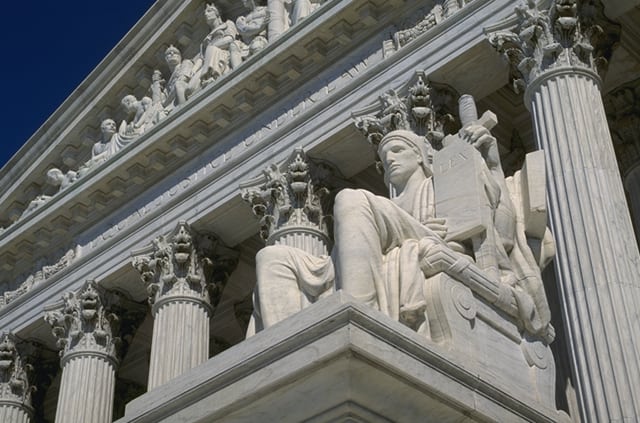
The news of the death of Supreme Court Justice Antonin Scalia just days after he voted in favor of a stay to the centerpiece regulation of the Obama administration’s climate efforts has left the international community reeling. Norwegian environmental group Bellona this week postulated on the uncertain future of the high court and, in turn, the Clean Power Plan.
“From an environmental view, the stakes are clear: Like no time in US history could the selection of a nominee to the high court have more influence on international climate change imperatives. Whoever ends up donning the black robe could sink or save US climate efforts and the Paris Agreement in one stroke,” the group said in an analysis Wednesday.
The Clean Power Plan, carbon emissions standards for existing coal-fired power plants, requires states to develop action plans to meet carbon emissions reduction goals determined by the Environmental Protection Agency.
The U.S. touted the rule and its massive carbon emissions reduction potential – cutting CO2 emissions from power plants by 32 percent below 2005 levels by 2030 – in December during negotiations at the 21st Conference of Parties to the United Nations Framework Convention on Climate Change. COP 21 resulted in the development of the Paris Agreement, the first universal climate deal in history, under which the U.S. committed to cutting its carbon emissions by 26-28 percent from 2005 levels by 2025.
Doubt was cast on the nation’s ability to meet its commitment, however, when the Supreme Court voted to halt implementation of the Clean Power Plan pending legal review, which is not likely to conclude until mid-2017. The 5-4 vote for the stay, with Scalia ruling in favor, indicated skepticism among the justices regarding the legality of the rule.
However, Scalia’s death and an vacant seat on the court appear to have opened a few paths forward for the regulation. The greatest variable now lies in who will get to nominate Scalia’s successor, Bellona wrote. “Pushing through a Supreme Court nominee during this particular election year is creating a perfect storm with wildly divided Republican and Democratic points of view on the Clean Power Plan and climate change in general,” the article says. “In other words, it’s one of those freak political weather events that have become more common with the march of global warming.”
Immediately after the announcement of Scalia’s death, Republican leadership in Congress vowed to halt the nomination process, saying the next president should put forward the candidate, even though there is still sufficient time in Obama’s presidency to complete a successful nomination process. “The longest confirmation process on record was Justice Louis Brandeis at 125 days in 1916,” Bellona noted, comparing that to the 335 days currently remaining in Obama’s term.
This political climate leaves a few possible outcomes, according to Bellona. If Obama or whichever Democratic presidential candidate wins the nomination becomes president, the seat will be filled by a justice supportive of the rule. The court, in turn, would likely vote in favor of the regulation.
If a Republican wins the presidency, the final judgment on the merits of the rule is a toss-up. “It’s worth noting that that the stay on the Clean Power Plan’s implementation wasn’t a ruling on its merits,” the group noted. “If the Supreme Court ends up hearing oral arguments on appeal, things could still go favorably for the EPA even with five conservative Justices – if EPA pitches the case well enough that one of them breaks ranks.”
Finally, if the seat goes unfilled and the final merits-based judgment of the rule results in a 4-4 vote, the ruling will revert to the judgment of the lower court. “That decision is still a mystery but not entirely without clues. It was the Circuit Court that refused the original request to stay the Clean Power Plan’s implementation – which landed it on the Supreme Court’s desk. The Circuit Court [panel] is also staffed by three judges, two of who are democratic,” according to the analysis.